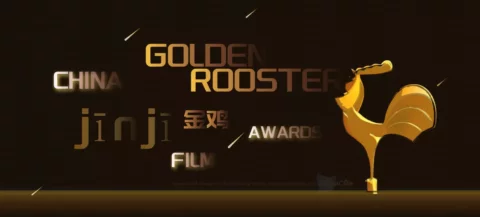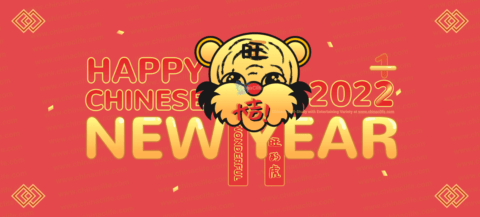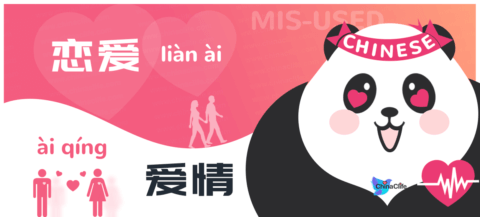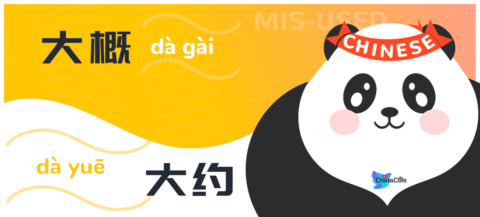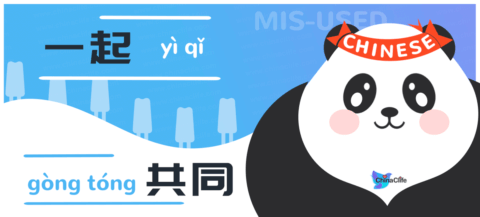How Do You Say “Christmas”, Greeting “Merry Christmas Eve”, “Merry Christmas” in Chinese For The Holiday Season?
用普通话说圣诞节和圣诞祝福
As the approach of annual Christmas festival for the holiday season, it is useful for non-Chinese speakers to learn how to say Christmas or Merry Christmas in Chinese, or "Putonghua", especially for those people visiting, studying or doing business with Chinese people, although it is not a major oriental festival in China neither celebrated there. The Chinese greetings for Christmas or Merry Christmas are as easy as what we learned for Halloween.
Target Story Words
English Words:
Chinese Pinyin:
Standard Chinese:
Similar Chinese Words:
圣诞前夕 Shèng dàn qían xī The Day before Christmas in Chinese.
Related Chinese Words:
圣诞季 shèng dàn jì Christmas and holiday season in Chinese.
夜晚 yè wǎn Evening or night in Chinese.
Table of Story
- Story Word in EN/CN/Pinyin
- Listen to Chinese Pronunciation
- What is the Chinese Word "Christmas"?
- Split-Look into Chinese Word "Christmas" With Examples
- How to Say "Merry Christmas" in Chinese?
- How to Say "Merry Christmas Eve" in Chinese?
- More Chinese Greetings And Wishes
- The Next May Interest You
- Share & Comment
What is the Chinese Word "Christmas"?
“圣诞节”的中文
In the beginning, the standard Chinese word for Christmas is as simple as we've got from the Chinese for Halloween and Hallowmas in previous story.
“Christmas”对应的中文表达,也同我们在另一篇故事里提到的“Halloween”和“Hallowmas”的中文名称一样,并不难学。
As we know, almost all Chinese festivals' name are ending with a single character 节 (jié) standing for the meaning of Festival, so is the Christmas festival in China, where put 圣诞 (shèng dàn) plus 节 together to form a unified Chinese translation word 圣诞节 (shèng dàn jié) for Christmas in Chinese (Putonghua).
众所周知,几乎所有的中国节日名都以“节”字结尾,这一个汉字就代表“节日”的含义,“Christmas”的中文名也不例外。它是由“圣诞”加“节”字组成“圣诞节”,成为了标准中文(普通话)里“Christmas”的统一名称。
- 圣诞节 - (shèng dàn jié) - The Christmas in Standard Chinese (Putonghua, aka. Standard Mandarin)
Split-Look into Chinese Word "Christmas" With Examples
举例分说其中的汉字
As it is mentioned above, this two-character Chinese word 圣诞 (shèng dàn) is the specific term describing Christmas or Christmas-related in China.
“圣诞”是中文里针对 Christmas 或该节日相关的专属汉语词语。
However, if we split the word into single characters it contained, each character has common meanings and is frequently to see in other Chinese words.
若分开来看,每个汉字都有其各自的含义,常出现在其他汉语词中。
The following separate explanation for each might be helpful for you to better understand why 圣诞 or 圣诞节 is defined as the standard Chinese word of Christmas festival, and how each of them is used commonly in daily China.
以下将对“圣诞”、“圣诞节”里包含的汉字分别给予单独的解释,或对学习普通话更有帮助。
A Complex Character "诞" For Christmas in Chinese
| 圣诞节的“诞”字
In Standard Chinese, the second character 诞 (dàn) which seems a bit complex often indicates the birth and birthday issues, especially the birth of an important or respected person or a saint when it was formally used in a Chinese noun.
在中文里,圣诞节中看起来笔画略多的第二个汉字“诞”,通常表示与出生、生日那一天有关,尤其用在一些正式用语里表示重要或尊敬的人的生日。
And, that's why there is a formal Chinese word 诞辰 (dàn chén) appeared frequently in newspapers to describe the anniversary of the birth of a famous person. In contrast, for common people, a simple word 生日 (shēng rì)" is much more regular to see or hear anywhere, meaning the birthday.
比如在报刊中常出现的中文名词“诞辰”,是用来表示著名人士的出生纪念日。对普通人而言,更常用“生日”这个壁画更少的词来表示生日。
The First Character "圣" For Christmas in Chinese
| 圣诞节的“圣”字
In relation to the first character 圣 (shèng) of the standard Chinese word "Christmas", since Christmas is the religious day for Westerners commemorating the birth of Christ, and the character 圣 usually stands for the title of a holy person or wisdom master, it is not hard to understand why the Christmas is widely called 圣诞节 in Standard Chinese.
关于“圣诞节”里的第一个汉字“圣”,由于圣诞节是西方纪念耶稣诞生的带有宗教色彩的节日,而汉字“圣”在中文里常用来尊称神圣的或具有超高智慧的圣贤人物,因此不难理解中文里将 Christmas 称作“圣诞节”一词了。
How to Say Greeting "Merry Christmas" in Chinese?
中文版圣诞问候(一)
Well, it seems that a Chinese phrase or sentence structure X X 快乐 has already been the most popular Chinese greeting formula for joyful festivals no matter which belongs to the Eastern or Western.
你或许早已知道,类似“ X X 快乐 ”这样的句型已成为了人们在喜庆节日里彼此问候时最常用的一句中文公式,无论节日本身是来自东方的或是西方的。
Thus, the popular Christmas greeting "Merry Christmas" could be turned into 圣诞快乐 (shèng dàn kuài lè) in the Standard Chinese. And both the word "merry" and "happy" are equivalent with the Chinese word 快乐 (kuài le).
因此,Merry Christmas 也可以变成普通话版本的节日问候语“圣诞快乐”。其中,英文单词“merry”和“happy”在中文里都对应“快乐”一词。
- 圣诞节 - (shèng dàn die) - equal to the festival name Christmas or Christmas Festival in Chinese (Putonghua, aka. Standard Mandarin)
- 圣诞快乐 - (shèng dàn kuài lè) - It is how the festival greeting Merry Christmas is spoken or written in Chinese (Putonghua), or fully with 圣诞节快乐 (shèng dàn jié kuài lè) in Chinese.
How to Say Greeting "Merry Christmas Eve" in Chinese?
中文版圣诞问候(二)
Firstly, how do you say the Chinese word for "Christmas Eve"?
首先,你知道“Christmas Eve”在中文里该怎么说吗?
Is it similar as the Chinese for "Halloween" which uses 前夕 (qián xī) or 前夜 (qián yè) to indicate the night before the festival? Although no one could deny the Chinese phrases 圣诞前夕 (shèng dàn qián xī) or 圣诞节前夜 (shèng dàn jié qián yè) right associating with Christmas Eve, they are not mentioned actually in China daily.
是否也如“Halloween”一般在节日名里加上“前夕”或“前夜”这样的词语来指向节日前一晚的意思? 无法否认的是,“圣诞前夕”、“圣诞节前夜”确实能用来表示 Christmas Eve,但在现实生活中,人们并不常用这样的中文词汇。
Instead, the Christmas Eve in China is always called 平安夜 (píng ān yè) in the Standard Chinese, which is said originated from the song "Silent Night" into Chinese. It is because that the common Chinese word 平安 (píng ān) is meaningful to the people, not only implying the safe blessing for people, but also pointing to the inner peace and quietness for their heart inside.
相反,在中国“Christmas Eve”常被称作“平安夜”,据说其中的缘由与“Silent Night”这首歌被译为中文名《平安夜》有关,因常用词“平安”在中文里既能指安全的意思,又能表示内心的安宁。
Accordingly, one of the Chinese formulas above is applied here again. The festival greeting "Merry Christmas Eve" can be turned into a simple Chinese sentence 平安夜快乐 (píng ān yè kuài lè). Did you get it?
如此,我们再次套用一下上文提到的中文公式。“Merry Christmas Eve”这句祝福语相应地可以变为一句中文祝福“平安夜快乐”。
- 平安 - (píng ān) - The word Safe in Standard Chinese (Putonghua, aka. Standard Mandarin)
- 平安夜 - (píng ān yè) - It is how the term Christmas Eve is actually said using Standard Chinese (Putonghua) in daily China.
- 平安夜快乐 - (píng ān yè kuài lè) - The greetig sentence Merry Christmas Eve in Chinese (Putonghua)
As the word 平安 joins the Chinese expression groups for Christmas Eve, the popular Chinese greeting either for Christmas or Christmas Eve looks to have carried more messages in China. Not only the happiness and joy blessing are included in the greeting when it is spoken to others, but also being safe and peaceful are brought its own to the receivers.
加入了“平安”两个字后,无论是圣诞节还是圣诞夜,其中文的节日问候语看起来传递了更多的祝福话语。不仅祝愿他人拥有一个快乐、愉悦的节日时光,同时还将中文里蕴含的平安和宁静一并祝予他人。
To know more World Festivals into Chinese and Chinese Festivals with cultural customs, or looking for starting Chinese learning entertainingly, keep an eye on our updating at www.chinaclife.com.
想知道更多世界节日的中文表达,了解关于中国的传统节日和文化习俗,或想趣学中文,记得随时关注我们的更新。
Questions & Additional
Have you got any tips from this bilingual Chinese story above?
Do you have any other questions or suggestions?
You are free to write it down in the "Comments" section below or in our groups.
Any thought from you is appreciated, valuable, and might help the rest of the residents on the planet. 😀
Additionally...
Did You Start Learning Chinese with Pinyin?
Continue to read our User-friendly Chinese-Pinyin version of this story
(Unlocked for Free Logged-in and Premium residents only).
Hope it Helps! : )















